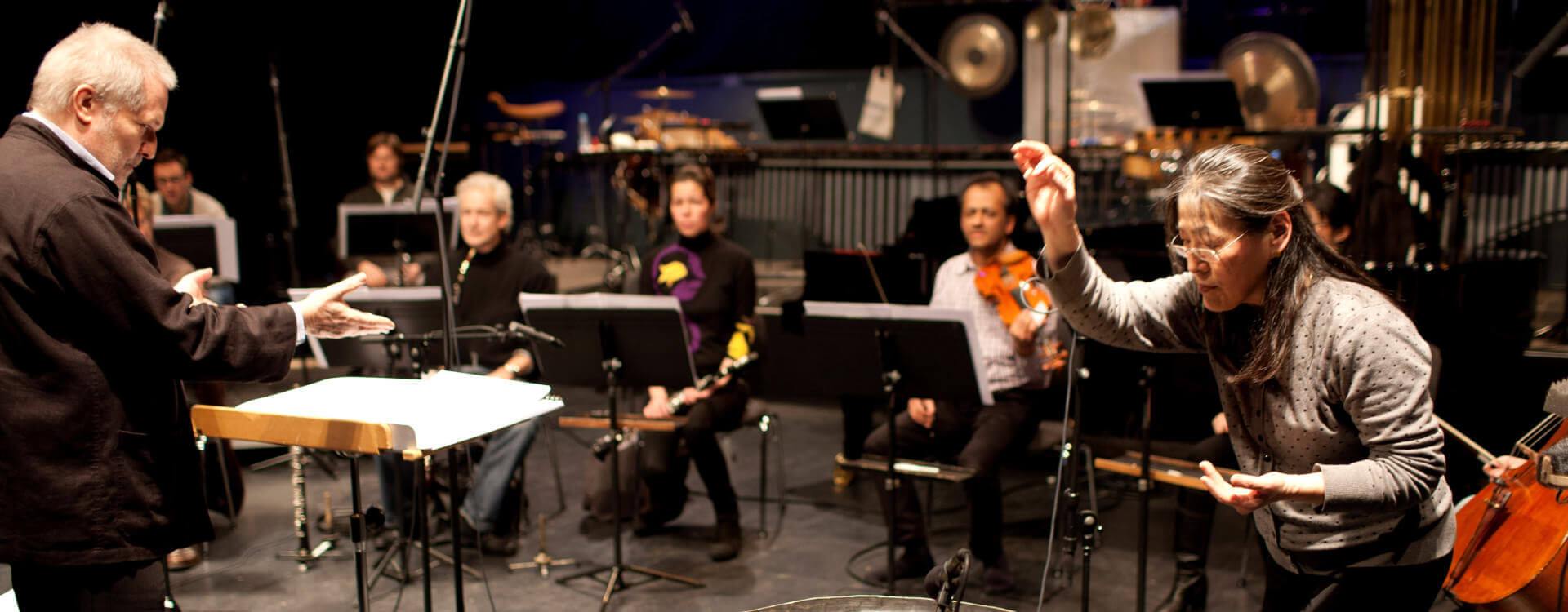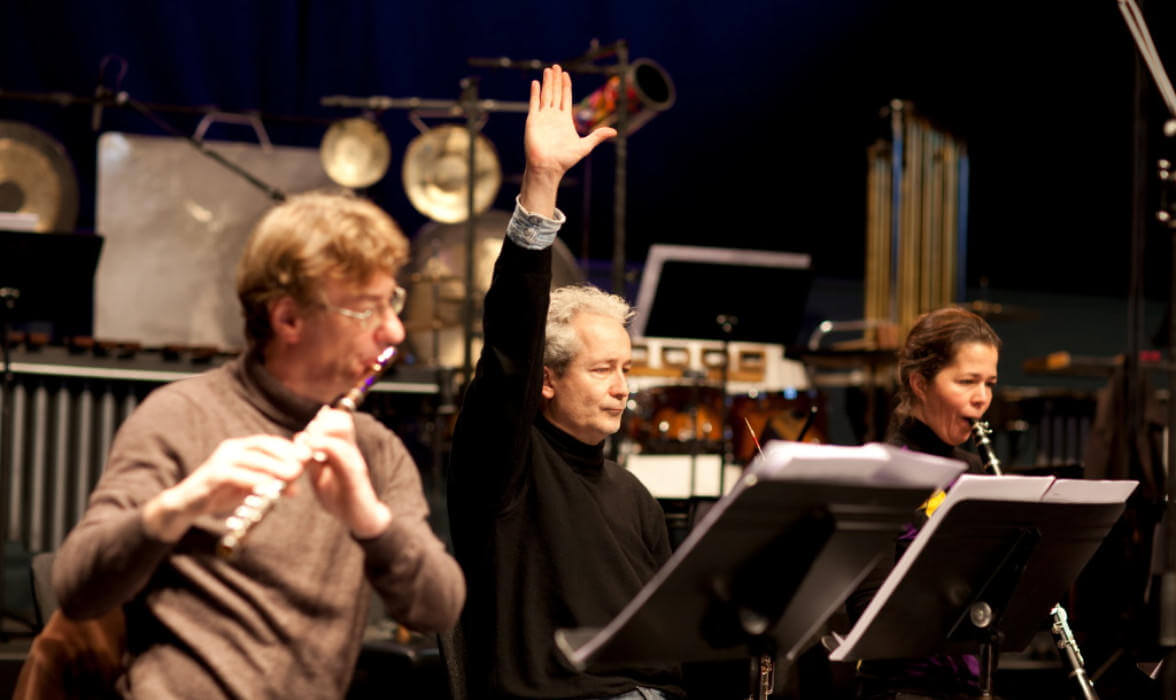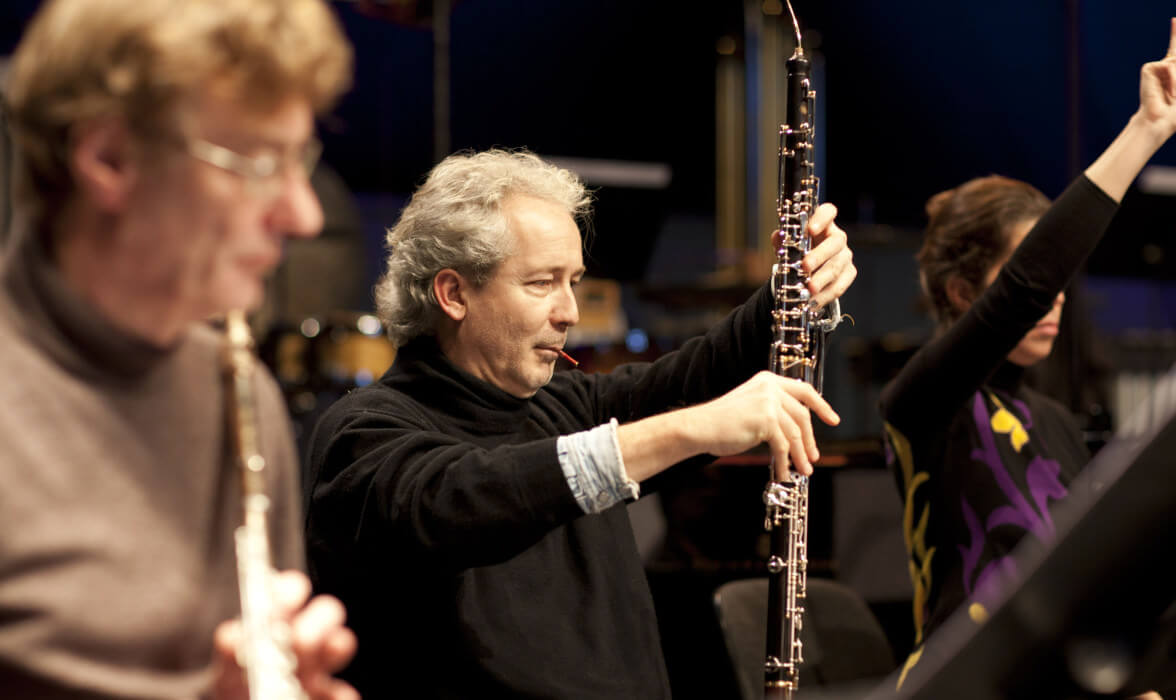Mythen
Woher? Wohin? – Mythen, Nation, Identitäten - ein Projekt des Goethe-Instituts, des Ensemble Modern und der BHF-Bank StiftungCulture and national identity: two areas that are closely connected. Undoubtedly, language provides a characteristic identifier for a nation – but do the arts, and especially music, also contribute to a nation’s definition process of its identity?
In Central Eastern Europe’s societies of the past, music often played an important role in the formation of national identities and self-assertion: suffice it to mention the importance of composers such as Bedřich Smetana for the Czech national movement or the role of the ›singing revolution‹ in the Baltic States in overcoming Soviet rule before 1990. In Central Eastern European transformation societies, the euphoria of the early 1990s has given way to disenchantment after experiences with the globalised market economy or the EU integration; the complex processes of the assertion of national identity in the national states that were revived after 1990 cannot do without the ›invention of traditions‹, the evocation of ›imaginary communities‹ or a fallback on traditional or constructed ›myths‹. In some cases, this leads to the exclusion of minorities in countries historically often marked by cultural heterogeneity.
This problematic area is the point of departure for the multi-level project ›Where from? Where to? Myths – Nation – Identities‹, initiated by the Goethe-Institute (Central Eastern Europe) and implemented together with the Ensemble Modern with support from the BHF-BANK Foundation. In a multi-level process, 28 young composers from Estonia, Latvia, Lithuania, Poland, the Czech Republic, Hungary, Slovenia and Slovakia were invited, based on the recommendations of prominent experts on the local music scene, to a workshop with the Ensemble Modern in Frankfurt in May 2011. A full rehearsal schedule with the members of the Ensemble Modern under the direction of Peter Eötvös, during which each invited composer had the opportunity to introduce him- or herself with an existing work, was flanked by lectures and discussions surrounding the complex network of ›nation, myths and identities‹ in the countries of Central Eastern Europe. The participating composers were then invited to submit project sketches on this theme to a jury, leading to eight commissions.
Despite their high concentration, the Ensemble Modern members cheerfully fried, burbled, steamed and stomped away, until trombonist Uwe Dirksen installed the aesthetic category of the »flatolet« during the digestive postscript.Frankfurter Allgemeine Zeitung, Benedikt Stegemann


